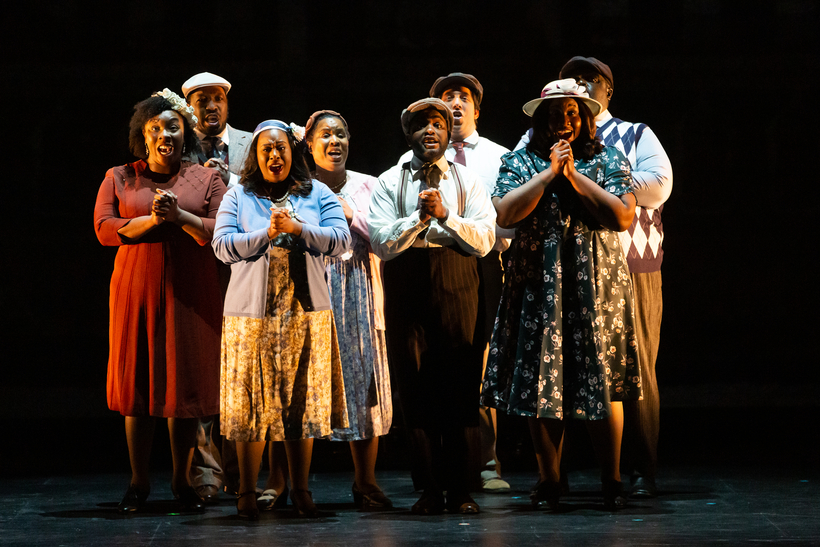On Easter Sunday, 1939, before a microphone on the steps of the Lincoln Memorial, accompanied only by a piano, Marian Anderson closed her eyes and sang “America” to a crowd of 75,000 people of all races and a radio audience that numbered in the millions. The Daughters of the American Revolution, you see, had barred her from their auditorium, Washington’s largest, in Constitution Hall. So Anderson performed outdoors instead, thus inscribing her name forever on one of the most luminous pages in the annals of civil rights.
Commissioned by the Houston Grand Opera, the hour-long chamber opera Marian’s Song received a rousing welcome at its premiere in March of last year, just before the world went into lockdown. A digital reboot is now streaming through May 30. The libretto, by Deborah D.E.E.P. Mouton, Houston’s first Black poet laureate, views Anderson’s path through the eyes of contemporary slam poet out to save the church where Anderson first sang as a girl. (Spoiler alert: that church is gone.) The score by Damien Sneed, master of musical trades too many to list, stitches snatches of Bellini, Schubert, Richard Strauss, and spirituals (all staples of Anderson’s recital repertoire) into a patchwork of hip-hop-eratic parlando.
As Marian, the statuesque mezzo-soprano Zoie Reams inhabits her role with dignity that never weighs heavy. Tina B, herself a slam poet, slides effortless into the skin of the narrator Nevaeh Johnson, a real firecracker. Having impersonated a frosty white bigot or two, the soprano Cynthia Clayton redeems herself as First Lady Eleanor Roosevelt, who quit the D.A.R. over the Anderson affair and cleared the way for what happened next, which is, as it must be, the climax of the opera.
Marian’s Song is available for streaming on the Houston Grand Opera’s Web site
Matthew Gurewitsch writes about opera and classical music for AIR MAIL. He lives in Hawaii

